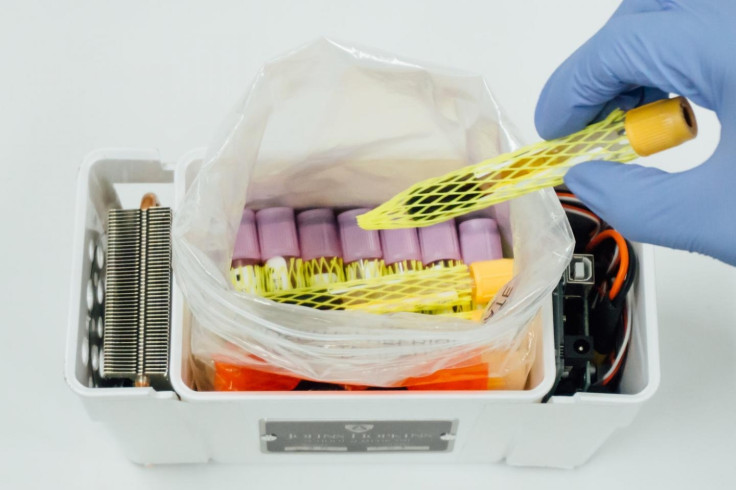Medical drone successfully delivers human blood after flying over 161 miles of desert
Drones could soon revolutionise transport of medical samples, lab materials and even organs, saving lives in the process.

Researchers from Johns Hopkins University have set a new distance record for a medical drone delivery, successfully transporting human blood samples over 161 miles of Arizona desert.
The achievement adds to the evidence that drones can be a fast and effective way of transporting medical samples, lab materials and even organs to-and-from remote or difficult to reach areas.
"Drones can operate where there are no roads, and overcome conditions that disable wheeled vehicles, traffic and other logistical inefficiencies that are the enemy of improved, timely patient diagnoses and care", said Timothy Amukele, senior author of the paper, which is published in the American Journal of Clinical Pathology.
"Drones are likely to be the 21st century's best medical sample delivery system."
To test the effectiveness of drone transport, the team first collected 84 pairs of blood samples. Each half was loaded onto a commercially available drone equipped with a special temperature-controlled chamber – which the researchers designed – to ensure the samples were viable for analysis in the lab after the journey.
The drone then flew for 3 hours, travelling 161 miles across the desert in a loop and landing at the same take-off point. Meanwhile, the other half of the blood sample pairs that were not loaded onto drone, were held in a car near the take-off point in order to mimic common transportation conditions. To keep them cool, they were also kept in a similar temperature-controlled chamber.
When they analysed the samples, the team found that those which were taken on the drone were cooler than those kept in the car. Crucially, there was little significant difference in the chemical and biological makeup of the samples after the flight meaning transportation by drone did not negatively affect them anymore than transportation by car would.
"Getting diagnostic results far more quickly under difficult conditions will almost certainly improve care and save more lives," Amukele said.
© Copyright IBTimes 2024. All rights reserved.





